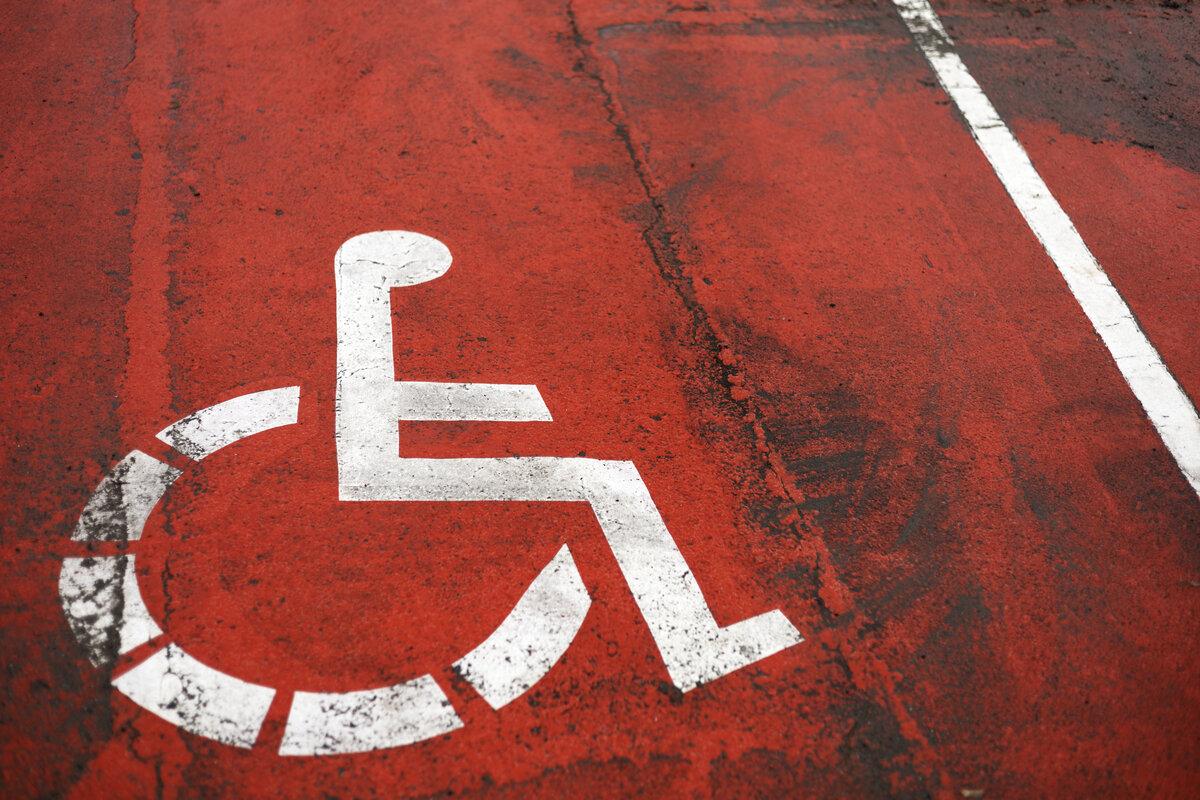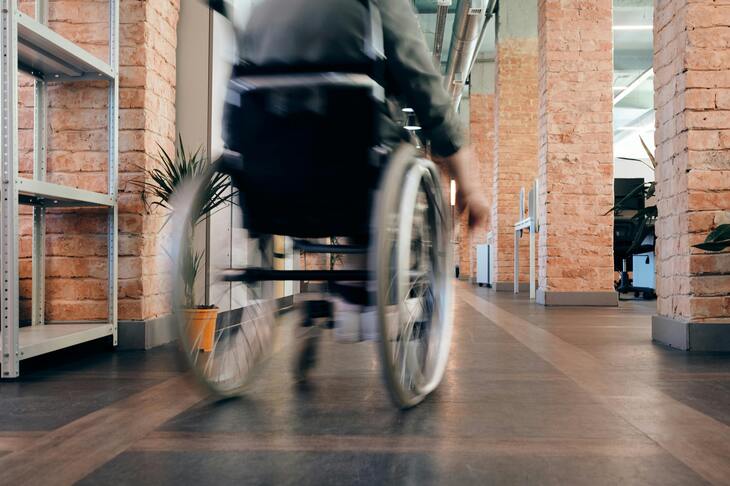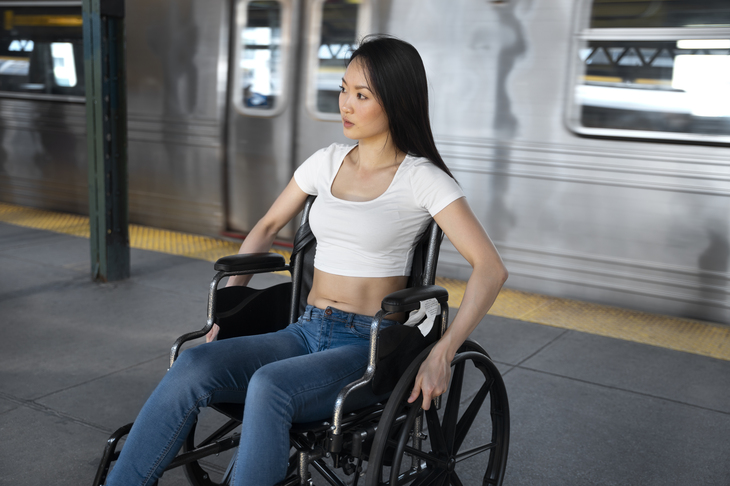Is a Handicap Parking Permit Right for You? Here’s How to Decide

Dealing with the difficulties of life with a disability can be tough. However, one valuable tool that can significantly ease these challenges is a handicap parking permit. This document allows disabled people to access designated parking spaces closer to building entrances. But, do you need a handicap parking permit?
Deciding whether a handicap permit is right for you involves more than just checking off a list of symptoms. It requires a thorough understanding of the eligibility criteria, the benefits and drawbacks, and the application process.
Understanding Handicap Parking Permits
What Is a Handicap Parking Permit?
A handicap parking permit is a special authorization issued by the Department of Motor Vehicles (DMV) that grants individuals with disabilities the right to park in designated accessible spaces.
These spaces are typically located near the entrances of buildings, making it easier for permit holders to access facilities. The permit comes in various forms, including placards, license plates, and decals, each serving the same purpose but varying in appearance and usage regulations.
Types of Handicap Permits
- Permanent Handicap Permits: These are issued to people with long-term or permanent disabilities that significantly impact their mobility. Permanent permits are typically valid for several years and must be renewed periodically.
- Temporary Handicap Permits: Temporary permits are granted for short-term disabilities or conditions that temporarily limit mobility, such as recovery from surgery or a broken leg. These permits are usually valid for a few months and can be renewed if necessary.
- Organization Handicap Permits: Issued to organizations that regularly transport individuals with disabilities, such as nursing homes or group homes. These permits allow the organization to use accessible parking spaces when transporting clients.
Who Qualifies for a Handicap Permit?
The eligibility criteria for obtaining a handicap parking permit vary by state but generally include a range of physical and medical conditions. Understanding medical conditions for a handicap permit is crucial in determining whether you or a loved one might be eligible.
Here are some common conditions and situations that typically qualify:
- Mobility Impairments: Conditions that significantly limit a person’s ability to walk, such as arthritis, severe lung disease, heart conditions, or the need for portable oxygen.
- Visual Impairments: Severe vision loss or blindness, which can make navigating parking lots and pedestrian areas difficult.
- Neurological Conditions: Disorders like multiple sclerosis, cerebral palsy, Parkinson’s disease, or other neurological conditions that affect coordination and movement.
- Temporary Disabilities: Situations that temporarily impair mobility, such as recovering from surgery, injuries, or other medical treatments.
- Other Conditions: Some states include other conditions such as severe obesity, pregnancy complications, or mental health conditions that impact physical mobility.
Assessing Your Need for a Handicap Permit
Defining whether you need a handicap permit involves a careful evaluation of your daily challenges and mobility limitations. Reflecting on your day-to-day experiences can help you decide if a permit would be beneficial. Consider the following questions:
Do you have difficulty walking long distances?
For some, walking more than a few hundred feet can be exhausting or painful. If this is the case, a handicap permit can significantly reduce the physical strain by allowing you to park closer to your destination.
Do you use mobility aids?
If you rely on a wheelchair, walker, cane, or crutches, having a handicap permit can provide easier access to buildings and reduce the distance you need to travel on foot.
Do you experience significant pain or fatigue when walking?
Chronic pain or fatigue, whether from conditions like fibromyalgia, chronic fatigue syndrome, or arthritis, can make walking challenging. A permit can alleviate some of this burden.
Do you require frequent rest breaks while walking?
If you need to stop and rest frequently due to shortness of breath, dizziness, or fatigue, a handicap permit can provide closer parking options and reduce the need for rest breaks.

Medical Evaluation and Documentation
Obtaining a handicap permit typically requires a medical evaluation from a licensed healthcare provider. This evaluation serves as a critical step in the application process, providing the necessary documentation to demonstrate your eligibility.
The healthcare provider will assess your condition, considering factors like mobility limitations, pain levels, and the need for mobility aids. This documentation is essential, as it provides the issuing authority with a clear understanding of your medical needs.
Benefits of Having a Handicap Parking Permit
Enhanced Accessibility
One of the most significant benefits of a handicap permit is the enhanced accessibility it provides. Designated parking spaces are usually located near the entrances of buildings, reducing the distance you need to walk.
This is especially beneficial for individuals with limited mobility, chronic pain, or fatigue, as it minimizes the physical strain associated with driving through large parking lots.
Reduced Physical Strain
For those with mobility impairments, walking long distances can be physically demanding and exhausting. A handicap permit allows you to park closer to your destination, thereby reducing the amount of walking.
This can help prevent fatigue, reduce pain, and minimize the risk of falls or injuries. It can also make it easier to transport necessary medical equipment or mobility aids.
Legal Protections and Compliance
Handicap permits also come with specific legal protections. Unauthorized vehicles parked in designated handicap spaces can be fined or towed, ensuring that these spaces are reserved for individuals who genuinely need them.
This legal backing helps maintain the availability of accessible parking and ensures compliance with the Americans with Disabilities Act (ADA) and other relevant laws.
Drawbacks and Considerations
Potential Misuse and Abuse
While handicap permits provide essential benefits, it is common to see handicap permits misuse and abuse. This can include using someone else’s permit, obtaining a permit under false pretenses, or using a permit when it’s no longer needed.
Such misuse can make it more challenging for legitimate permit holders to find accessible parking spaces. It’s essential to use the permit responsibly and understand that it is intended to assist those with genuine needs.
Public Perception and Stigma
Another consideration is the potential public perception and stigma associated with using a handicap permit, particularly if your disability is not immediately visible. Some individuals may question your need for the permit or make insensitive comments.
It’s important to remember that your health and well-being are paramount, and the permit is a legitimate tool to support your mobility needs. Don’t let negative perceptions deter you from using the accommodations you are entitled to.

How to Apply for a Handicap Permit
Application Process
The process for applying for a handicap permit varies by state; the North Carolina handicap parking permit process might differ from the Virginia disabled parking permit application, for instance. Wherever you are applying for a handicap permit, it generally involves several key steps:
- Obtain an Application Form: You can usually find this form on your state’s Department of Motor Vehicles (DMV) website or at a local DMV office. The form will ask for personal information and details about your medical condition.
- Complete the Form: Fill out the application, providing accurate and detailed information about your disability and mobility challenges.
- Medical Certification: Have a licensed healthcare provider complete the medical certification section of the form. This step is crucial, as the provider’s assessment will verify your condition and the need for a permit.
- Submit the Application: Submit the completed application along with any required fees to your state’s DMV or equivalent agency. Some states may allow you to apply online, by mail, or in person.
- Receive Your Permit: Once approved, you will receive your handicap permit, which may come in the form of a placard, license plate, or decal. Be sure to follow any specific guidelines for displaying and using the permit.
Renewal and Replacement
Handicap permits typically have an expiration date and must be renewed periodically. The renewal process may require re-certification of your condition by a healthcare provider to ensure that the permit is still necessary.
If your permit is lost, stolen, or damaged, you can request a replacement from the issuing authority. It’s important to keep your permit up to date and ensure that it is used only by the person to whom it was issued.
Alternatives to Handicap Permits
Accessible Public Transportation
If you do not qualify for a handicap permit or prefer not to use one, there are alternative options available to support your mobility needs.
Accessible public transportation, such as buses and trains equipped with ramps, lifts, and other accommodations, can be a viable option for many individuals. Many cities offer paratransit services, which provide door-to-door transportation for people with disabilities.
Ride-Sharing Services
Ride-sharing services like Uber and Lyft offer accessible options for individuals with disabilities. These services often include vehicles with ramps or other accessibility features, making them a convenient choice for those who do not drive or have difficulty parking.
Ride-sharing can also provide a level of independence and flexibility, allowing you to travel without relying on public transportation schedules.
Is a Handicap Permit Right for You?
Deciding if a handicap permit is right for you involves a thorough evaluation of your mobility, daily challenges, and medical conditions. If you believe you could benefit from such a permit, consult a healthcare provider and begin the application process. Your comfort, safety, and well-being are the top priorities, and a handicap permit can be a valuable tool in enhancing your quality of life.
Whether you want to apply for an Alabama handicap parking placard or need guidance on how to get a handicap placard in Nevada, we can make the process easier for you!
Featured image by Freepik